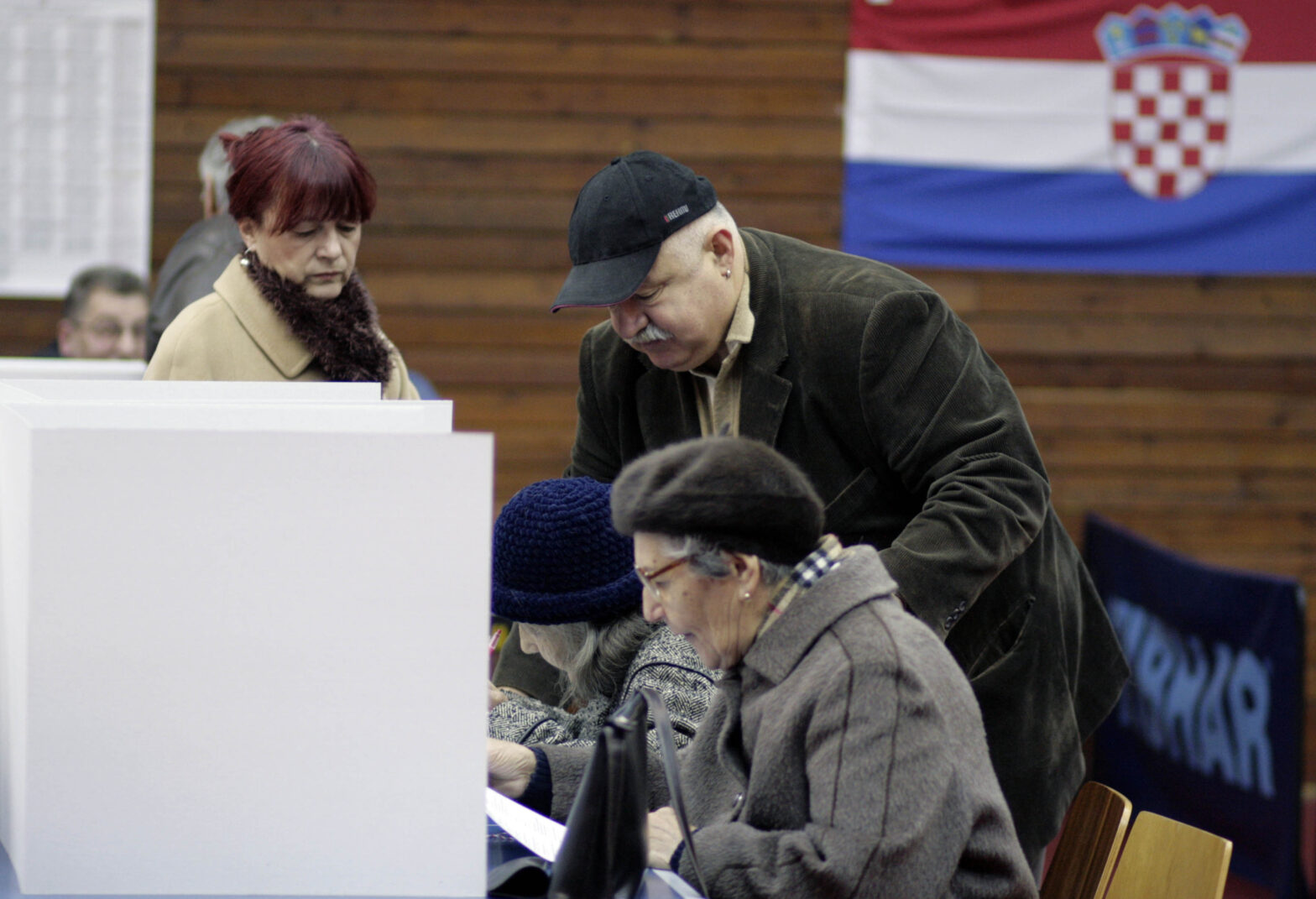The election of representatives to the Croatian Parliament in the Republic of Croatia took place on Sunday, November 25, 2007, at 6,707 polling stations. Croatian citizens were also able to vote abroad at 265 polling stations set up in 53 countries on Saturday and Sunday, November 24 and 25, 2007.
The election of representatives to the Croatian Parliament in the Republic of Croatia took place on Sunday,November 25, 2007, at 6,707 polling stations. Croatian citizens were also able to vote abroad at 265 polling stations set up in 53 countries on Saturday and Sunday, November 24 and 25, 2007.
Fourteen members of Parliament per constituency were to be elected in the 10 constituencies in the Republic of Croatia. Eight representatives were elected by members of national minorities, while voters without permanent residence in the Republic of Croatia elected 5 representatives in a special constituency (so-called Diaspora).
Voters could choose among 3,585 candidates in total (251 candidate lists in the Constituencies I to XI, and 72 candidates for representatives of national minorities). The total of 5,665,010 ballots was sent out to polling stations. Also, 6,972 polling stations were set up and the same number of polling commissions was appointed. Thirty-four foreign observers applied to monitor the election, alongside 5,061 observers from Croatian non-governmental organizations.
From the total of 4,478,580 voters eligible to vote at the election, 2,560,554 voters cast their votes (according to the number of ballots). There were 37,732 invalid ballots, i.e. 1.49 percent.
The election was called on October 17, and the final official results were published on December 24, 2007.
The election day went by in the atmosphere of democracy and tolerance at the majority of polling stations, with only a small number of irregularities noticed in the Republic of Croatia and somewhat greater number of irregularities recorded in B-H. A part of the electorate was deprived of their right to vote, especially the voters in hospitals, the sick and the infirm staying at home, members of national minorities who were not allowed to choose between the lists and voters who did not get their voting cards in B-H on time. One of the problems noticed was that the polling commissions showed different levels of education and professionalism. The election process was more transparent than in the previous elections, thanks to the institutions, which were open in their work and more active in informing voters, and to political parties, which made the sources and amounts of donations and campaign costs public for the first time ever, even though it was not required by the regulations.
The election process needs to be further improved with regulations which will make the elections more transparent and accessible to all groups of voters, and special attention has to be given to educating polling commissions to carry out the election procedure even more professionally. Institutions involved in the administration of the election should be more pro-active in relation to the public and voters in the future.
Read full report here (180 KB)
